A beautifully and sensitively told story, WAITING FOR ANYA relates an important chapter in world history. The more that stories like this one are told the better we are as a society for it. Adapted for the big screen by writer/director Ben Cookson and co-writer Toby Torlesse from the young adult novel by Michael Morpurgo, author of “The War Horse”, WAITING FOR ANYA opens the eyes of a new generation to little known history of the quiet heroes of World War II with a story of French villagers who rescued Jewish children and smuggled them over the Pyrenees mountains into Spain, saving them from the Nazis.
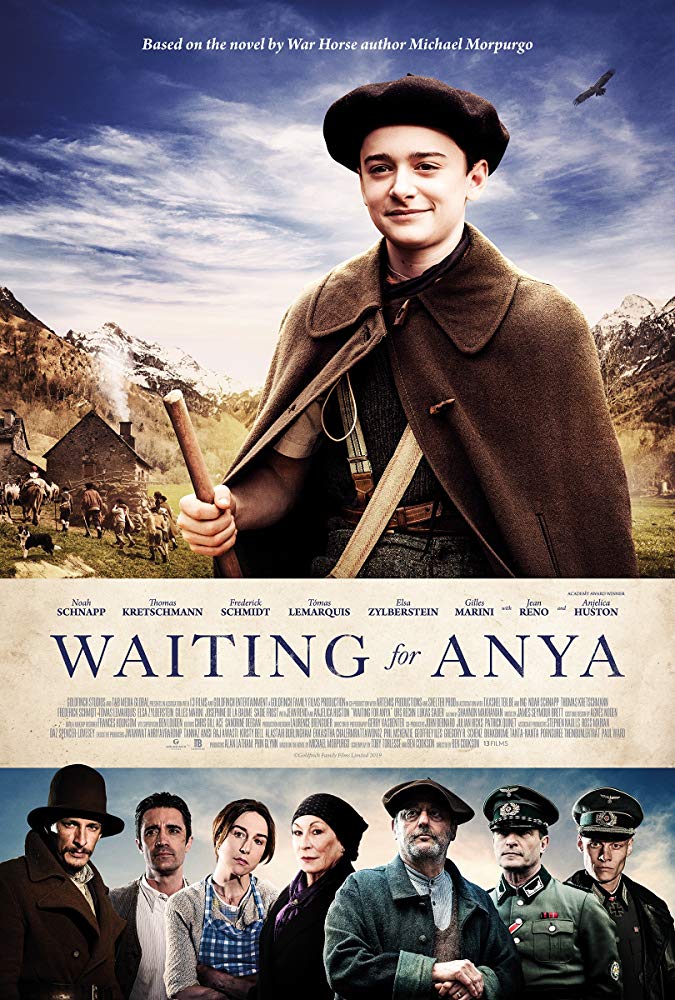
Set in the village of Lescun and told through the eyes of a young shepherd boy named Jo, the script is solidly constructed and the themes within the story thought-provoking and compelling. With the voice of Jo as an old man serving as off-screen narrator, we are taken back in time to 1942 France. With most of France occupied by the Nazis, the southern part of France bordering Spain where Jo lived had not yet been invaded. Although Lescun was not untouched by the war, life was simple and good, but also hard. Jo’s father, who had been off fighting for France, was now in a German POW camp. With his grandfather as the elder in the family and only able to carry so much of the daily burdens along with Jo’s mother, much responsibility now falls to Jo with his primary job being to tend to the family flock of sheep.
Of course, a 12-year old boy is often easily distracted and in this case, a nap was the cause of his inattentiveness. Awakened by the sound of an approaching bear, Jo panics and runs to the village, leaving the sheep completely unattended. The men in the village head out to hunt and kill the bear, something that shames Jo, especially when he learns through a stranger in the woods that the bear was only protecting her cub who is now orphaned and requires care. Taking the cub, the man disappears as quickly as he appeared, only to eventually be spotted by Jo at the home of the widow Horcada.
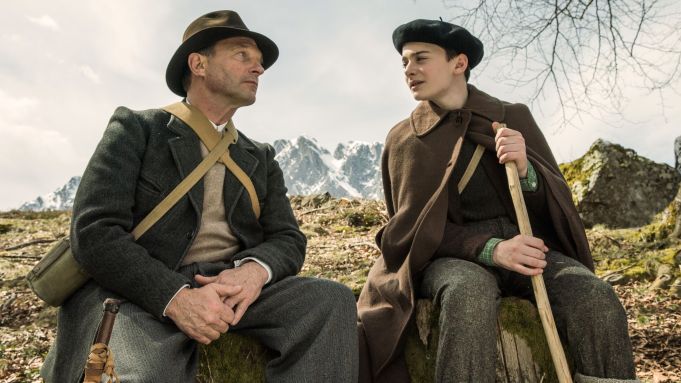
Sometime later, Jo learns the man is Benjamin, Horcada’s son-in-law. A Jew, he is hiding at her farm waiting with the hope that his young daughter Anya, whom he last saw when he put her on a bus to save her from transport to a Nazi concentration camp, will find her way to her grandmother’s. And while he waits, Benjamin and Horcada help other Jewish children escape France into Spain. Jo begs to help them. Adding a wrinkle to the mix is Jo’s grandfather Henri who has always had feelings for Horcada and takes every opportunity to find a reason to visit her farm.
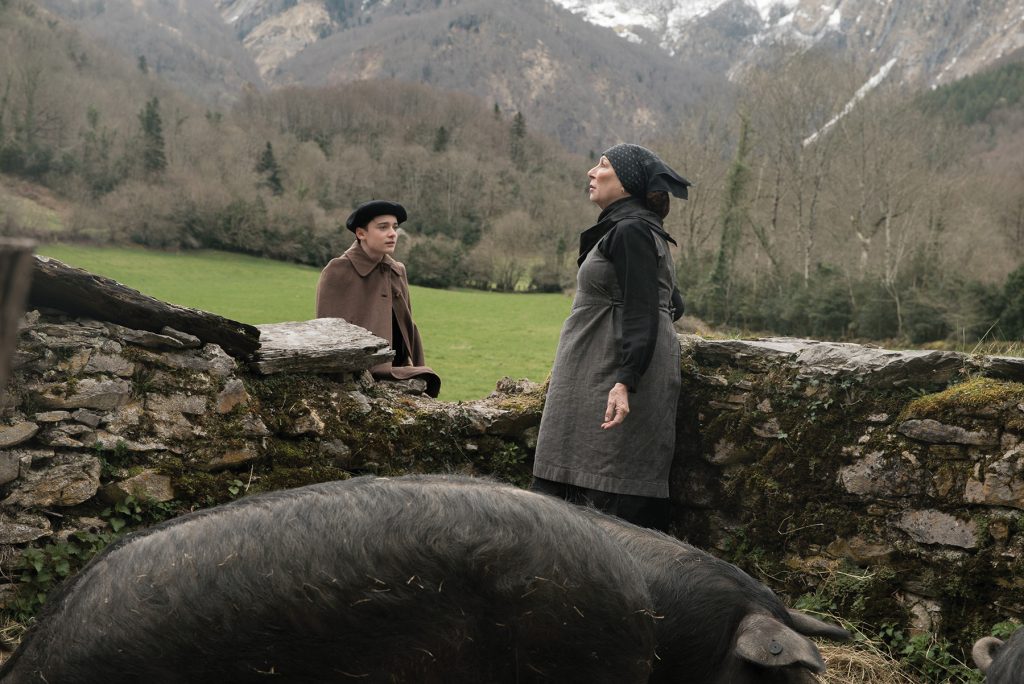
It doesn’t take long before the Nazis occupy Jo’s village for the purpose of preventing Jews from escaping to Spain through the Pyrenees. Making the situation slightly more tenable though is a kindly German Korporal who takes a liking to Jo and his best friend Hubert who is disabled, seeing the boys as a way to fill his own aching heart following the death of his daughter during a bombing raid. But no matter how kind the Korporal may be, he is still a German officer, and with troops living in the village performing raids and inspections on the residents, time is of the essence to get all of the children hidden by Horcada and Benjamin out of the country undetected.
Nothing about this story is black and white, but for Tomas Lemarquis’ German Lieutenant. While everyone has shades of grey in a very confusing time with each forced to submit to some sort of self-examination, Lemarquis is the face of the Axis of Evil and the Nazi regime. Standout is the moral ambiguity and internal conflict of the German Korporal played by Thomas Kretschmann, who is perfection in the role. His facial expressiveness and his observational tacit stillness is compelling, drawing you into not only the character but the story, while humanizing an individual versus an entire culture or regime. But then add Noah Schnapp to the mix and the emotion of WAITING FOR ANYA escalates tenfold.
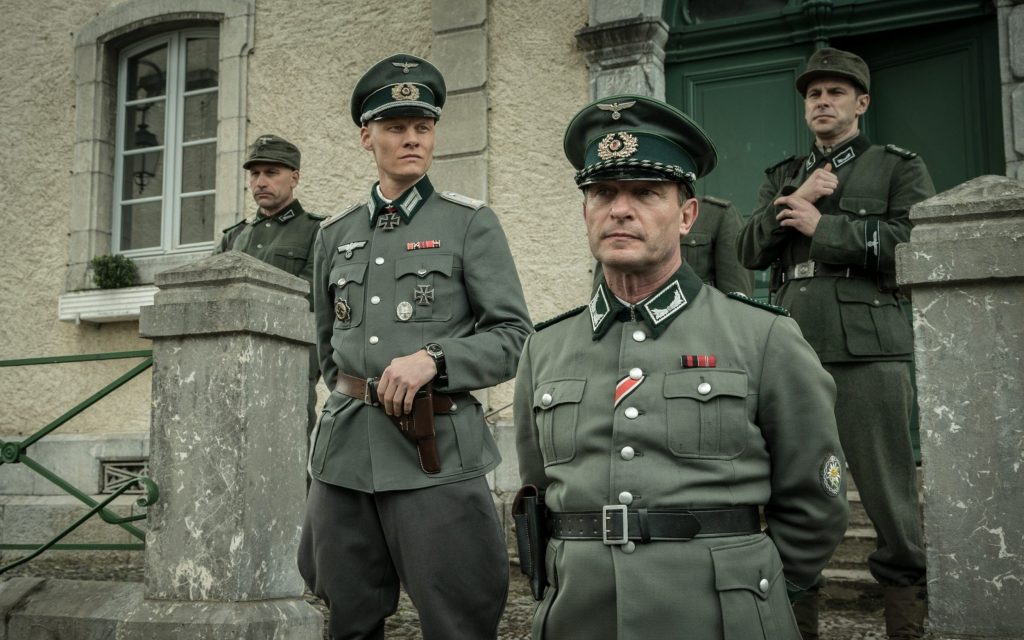
Forget everything you think you know about Schnapp’s acting ability from “Stranger Things”. As Jo, he soars in what really comes down to a coming of age story set within not only a changing world, but one torn apart by prejudice of unknown origin. Powerful is a key scene between the Korporal and Jo where the Korporal is talking about questions he has about life but for which he doesn’t have all the answers. Truly riveting, not only due to Kretschmann’s performance, but the open mind of Jo which Schnapp plays very non-judgmentally. This film is Jo’s POV and Schnapp delivers an emotionally layered performance that ranges from wide-eyed innocence and naivete to developing an understanding of people and the world through Jo’s friendship with the Korporal as well as Declan Cole’s Hubert and Anjelica Huston’s Horcada. We see this little corner of the world through Jo’s eyes and Schnapp tugs at your heartstrings. The emotional maturity we see develop within Jo is joyous and positive in a time of darkness. Schnapp carries the bulk of the film on his young shoulders and does so masterfully.
Huston is flawless as Horcada, as is Jean Reno as Henri. Watching the two of them together is a master class in an emotional dance. Huston makes us feel Horcada’s rage. It is palpable. On the flip side, so is her joy with just a simple smile. A nice turn by Gilles Marini as Jo’s father; similarly by Frederick Schmidt as Benjamin.
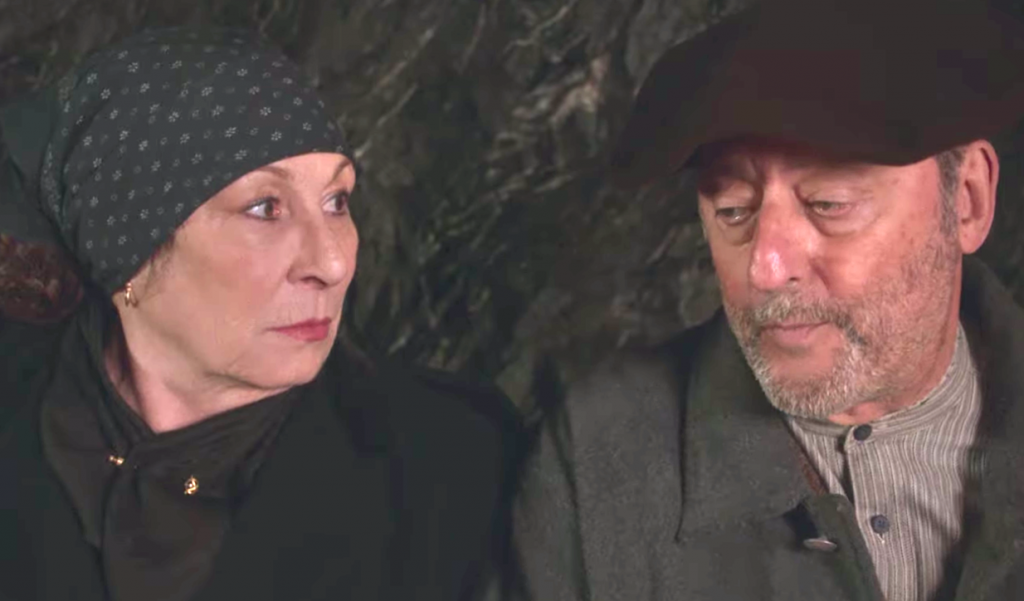
Cookson keeps an even hand on the film and steeps us in visual and emotional authenticity. Cinematography is breathtaking as Gerry Vasbenter’s camera showcases the beauty of the pastoral French Alps, serving as a perfect counter to the underlying horror of the war and the Nazis. Aerials harken to the richness and metaphoric vastness of the world beyond the borders which we first really saw when Robert Wise gave us with the Austrian Alps in “The Sound of Music.” Going beyond the beauty and serenity of the mountains, the town of Lescun is rich with texture that is tactile, tangible. The stone walls speak to a long history and lifestyle of the people, one that has withstood hundreds of years of peace and war, and still, life goes on. Laurence Brenguier’s production design of Jo’s home, the little village store, the cafe/bar, Horcada’s home nd farm, all show a simple life, but one that is rich with life thanks to weathered and worn woods that glisten from polishing, dishes and urns that are treated with care, basic foodstuffs and beautiful richly colored fruits and vegetables. Visually we continually see life amidst the horror and fear of war.
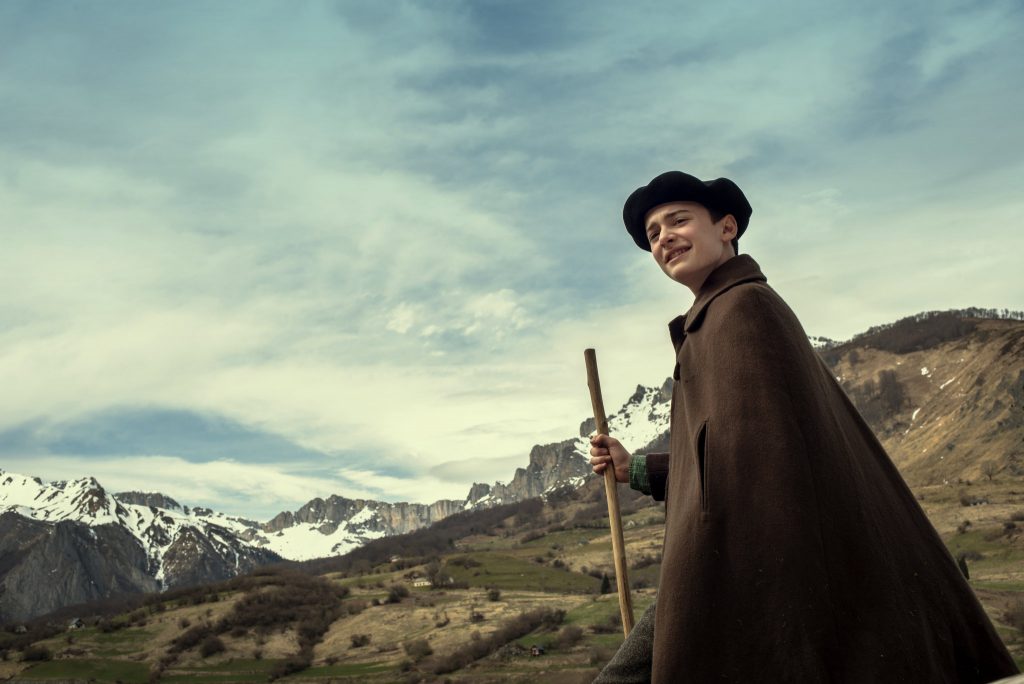
Then take a listen to James Seymour Brett’s score. Long a fan of Brett’s score orchestrations in film, here we are treated to his score composition and it is simply beauteous. He infuses the score with motifs of identifiable regional music from France, some German influence, a bit of Irish influence, and anytime we are near the mountain border of Spain, flourishes of distinctly cultural Spanish music. Very keenly, Cookson doesn’t overwhelm us with the use of the score. Similarly, kudos on the film’s sound design which incorporates aural levels that do not overpower the already powerful emotion of the story and performances.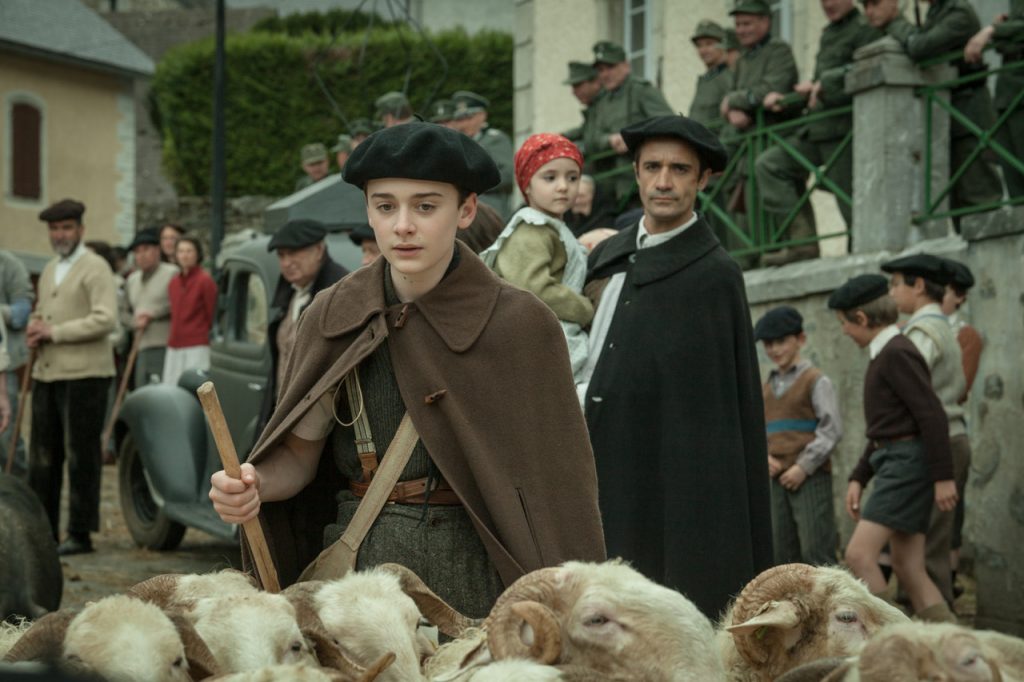 Filled with metaphor that plays out both visually and within the story as a whole, although deemed a young adult novel in its original novel form, WAITING FOR ANYA speaks to all ages, educating us on history while providing lessons in kindness and hope, while serving as a cautionary tale for the divisive times in which we live today.
Filled with metaphor that plays out both visually and within the story as a whole, although deemed a young adult novel in its original novel form, WAITING FOR ANYA speaks to all ages, educating us on history while providing lessons in kindness and hope, while serving as a cautionary tale for the divisive times in which we live today.
Directed by Ben Cookson
Written by Ben Cookson and Toby Torlesse adapted from the young adult book by Michael Morpurgo
Cast: Noah Schnapp, Thomas Kretschmann, Anjelica Huston, Jean Reno, Frederick Schmidt, Tomas Lemarquis
by debbie elias, 01/22/2020











